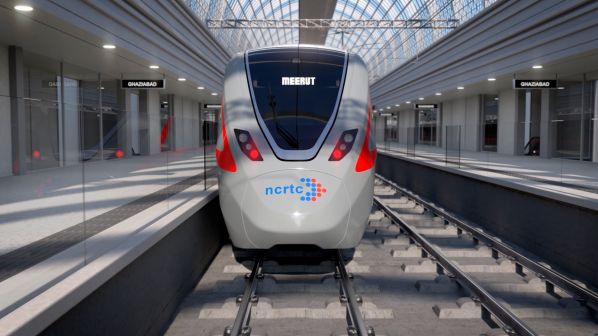ALSTOM has commenced manufacturing of rolling stock for the Delhi - Ghaziabad - Meerut 180km/h rail corridor that Indian Railways is developing as part of its Rapid Rail Transport System (RRTS) project, the manufacturer confirmed on July 16. Alstom says it will deliver the first train in early 2022.
The 82.5km 1435mm-gauge RRTS aims to offer fast rail connectivity between Delhi and Tier-2 cities in adjoining states. The RRTS line is also the first in India to adopt ETCS Level 2.
Alstom India managing director, Mr Alain Spohr, says the project will be a game changer in India's regional rail segment, “benefiting millions of people and contributing towards social economic development.”
Under the €314m contract agreed with Bombardier in May 2020 (prior to the takeover by Alstom), Alstom will supply 210 vehicles comprising 30 six-car trains for Delhi - Meerut RRTS services and 10 three-car trains for local services in Meerut. The agreement also includes 15 years of maintenance. Manufacturing of stainless-steel bogies, car bodies and train testing will be done at the former Bombardier facility at Savli. Propulsion systems and electricals will be manufactured at the plant in Maneja.
Alstom is also responsible for the design, supply, installation, testing and commissioning of signalling and train control and telecommunication systems under a €106m contract awarded in January.
Despite Covid-19-related restrictions, construction has continued on the corridor, with 800 piers of the elevated section and around 8km of viaduct complete. Trials on the “priority route” are set to be completed next year and the line will enter service in March 2023, confirmed an official from the National Capital Region Transport Corporation (NCRTC), the agency implementing the project.
“With the commencement of production of these world class trains, we are a step closer to achieving our promise to provide fast, reliable, comfortable commuter service, with the target to start the priority section by 2023,” says NCRTC managing director, Mr Vinay Kumar Singh. “The RRTS will significantly reduce hazardous air pollution, severe congestion and unmanageable urban sprawl in the National Capital Region.”
The trains’ design has been finalised at Alstom’s Global Engineering and Technology Centre at Hyderabad. The 3.2m-wide stainless-steel coaches will offer ergonomic seating and incorporate regenerative braking, efficient acceleration and deceleration. The trains will feature distributed traction while traction and auxiliary converters will be designed using the latest Insulated Gate Bipolar Transistors (IGBT) technology to minimise the use of heavy magnetic components.
For detailed data on fleet orders from around the world, subscribe to IRJ Pro.

